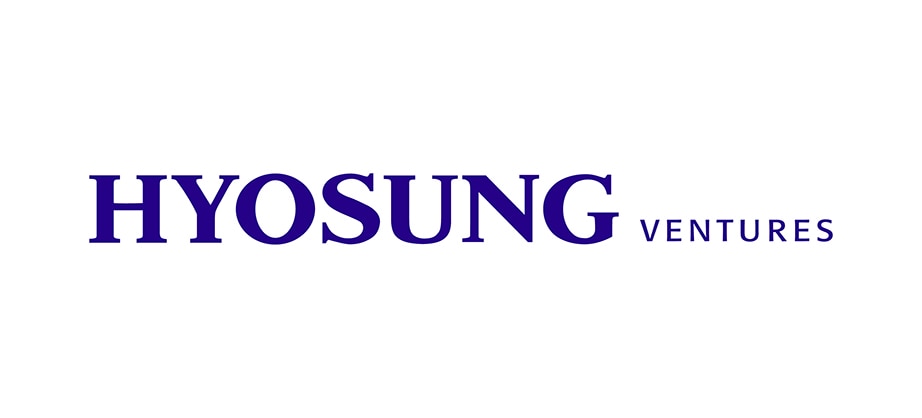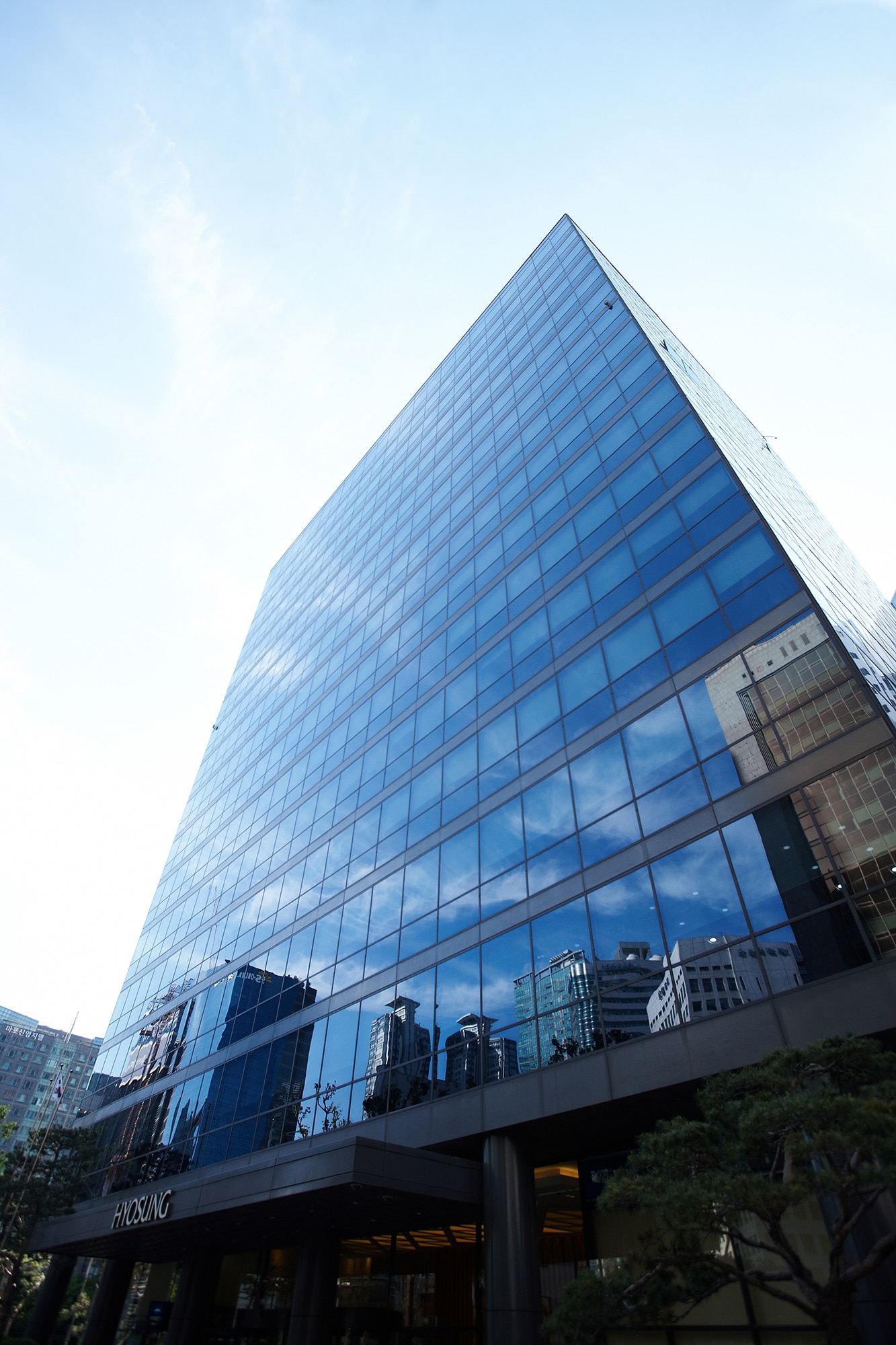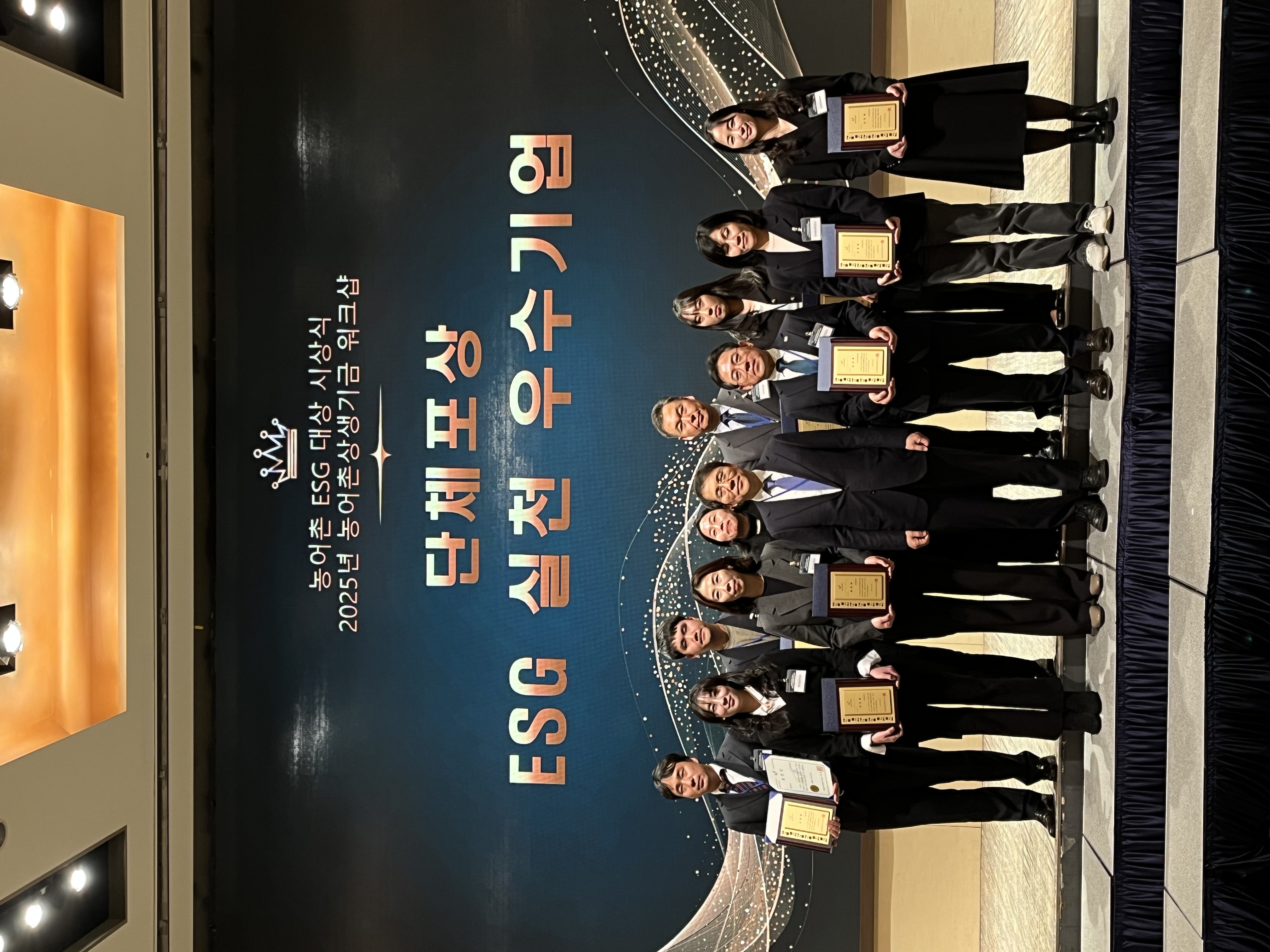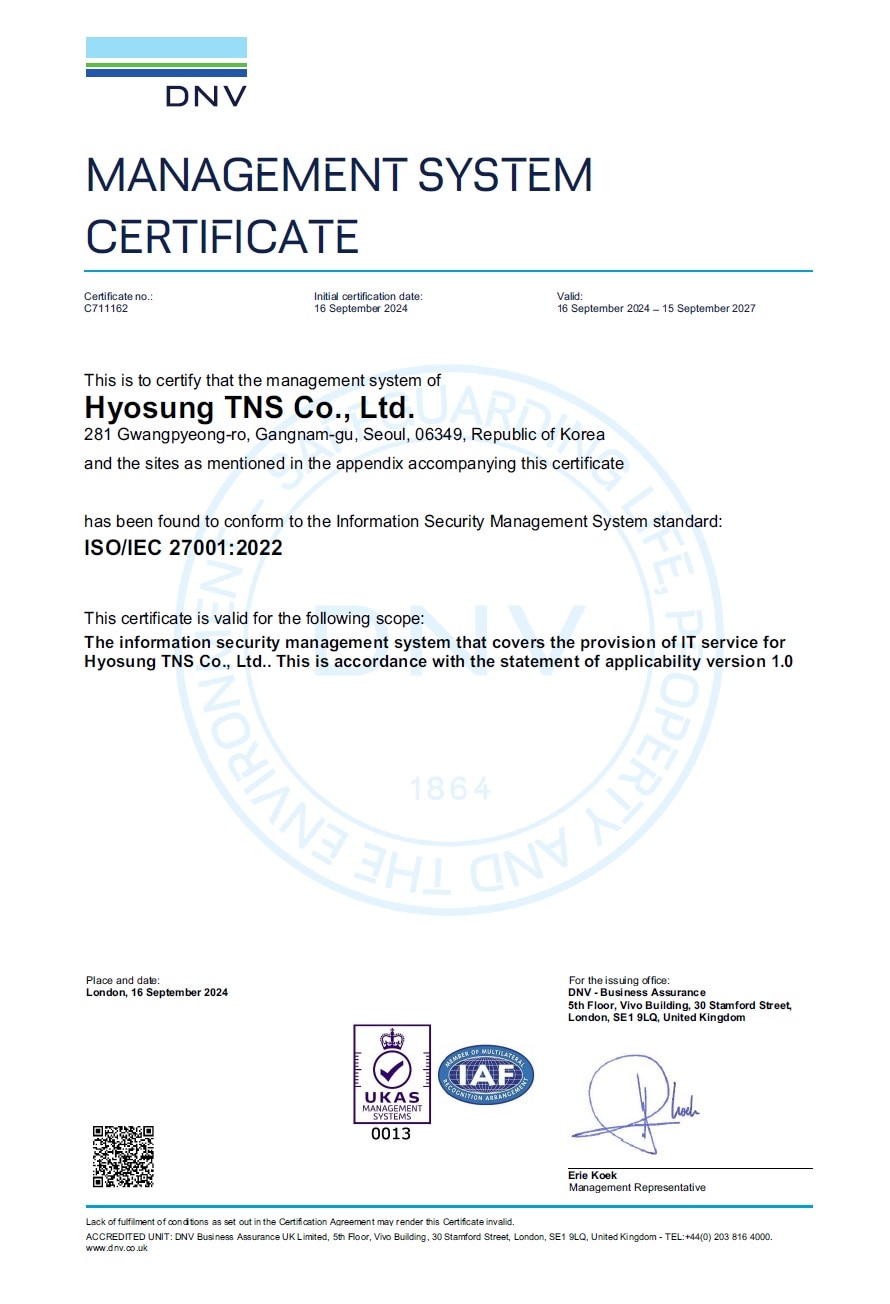Content content
Hyosung Chemical is teaming up with the Korea National Arboretum affiliated with the Korea Forest Service to take up measures for improving the ecosystem environment of the Demilitarized Zone (DMZ).
On the 26th, at Hyosung Chemical's headquarters in Seocho-gu, Seoul, Hyosung Chemical signed a mutual cooperation agreement (MOU) with the Korea National Arboretum for forest ecosystem restoration and biodiversity preservation in the DMZ area. CEO Geon-jong Lee of Hyosung Chemical and Director Young-seok Lim of the Korea National Arboretum attended the signing ceremony.
This agreement was signed to promote participation in activities to protect the natural ecosystem and preserve biodiversity as part of ESG management. The two entities will undertake joint cooperation for ESG management practices, such as ▲restoring the ecosystem of the DMZ wasteland and forest damage areas, ▲securing native plant seeds for forest ecosystem restoration, and ▲forming a social consensus on the importance of preserving biodiversity.
CEO Geon-jong Lee of Hyosung Chemical said, "The importance of forest ecosystems in the face of climate change is amplifying. Amid this increase, we have decided to team up with the Korea National Arboretum to actively participate in preserving the DMZ, a global ecosystem repository ,” and added, “We are committed to strengthening ESG management through various activities to preserve the ecosystem and biodiversity well into the future.”
Meanwhile, Hyosung Chemical has continued to undertake projects for environmental protection and biodiversity preservation with Hyosung Heavy Industries, Hyosung TNC, and Hyosung Corporation, its holding company . Since 2022, it has been undertaking conservation and coastal cleanup activities for sea squirts, known as blue carbon, a carbon absorber in the marine ecosystem. In addition, it has persistently contributed to building a healthy ecosystem for future generations through activities to support the feeding and treatment of winter migratory birds designated as endangered species and ensure wetland preservation to protect their habitats.










